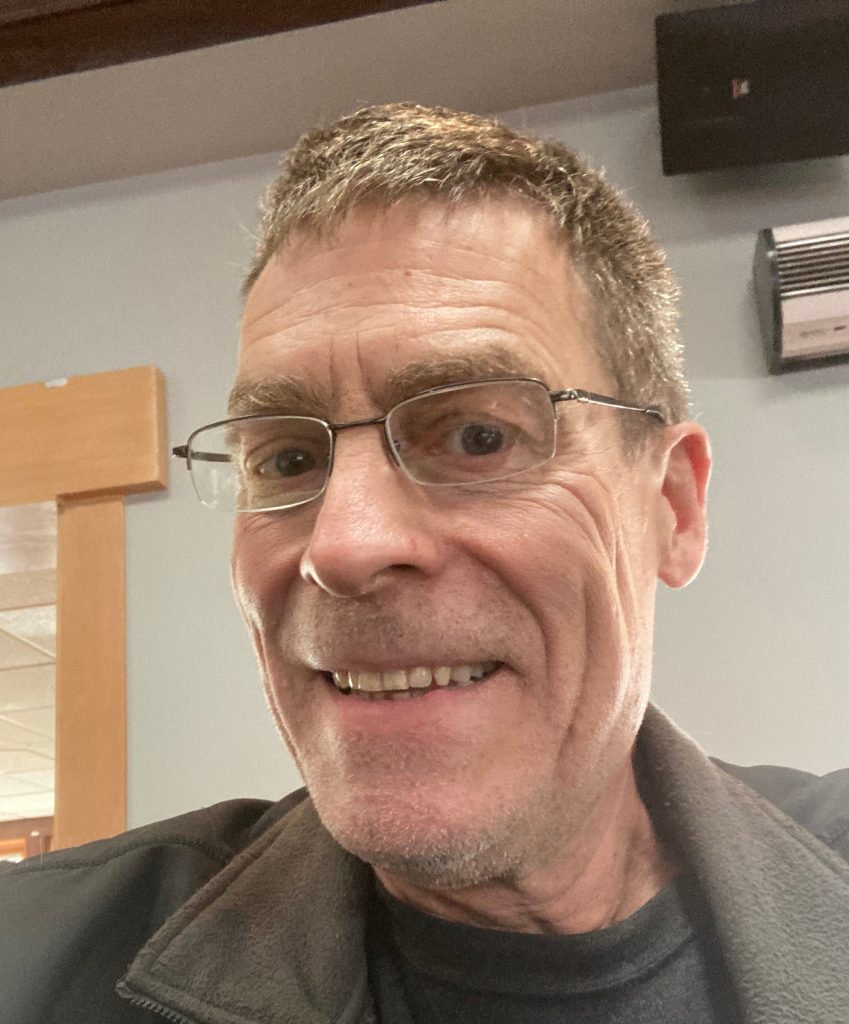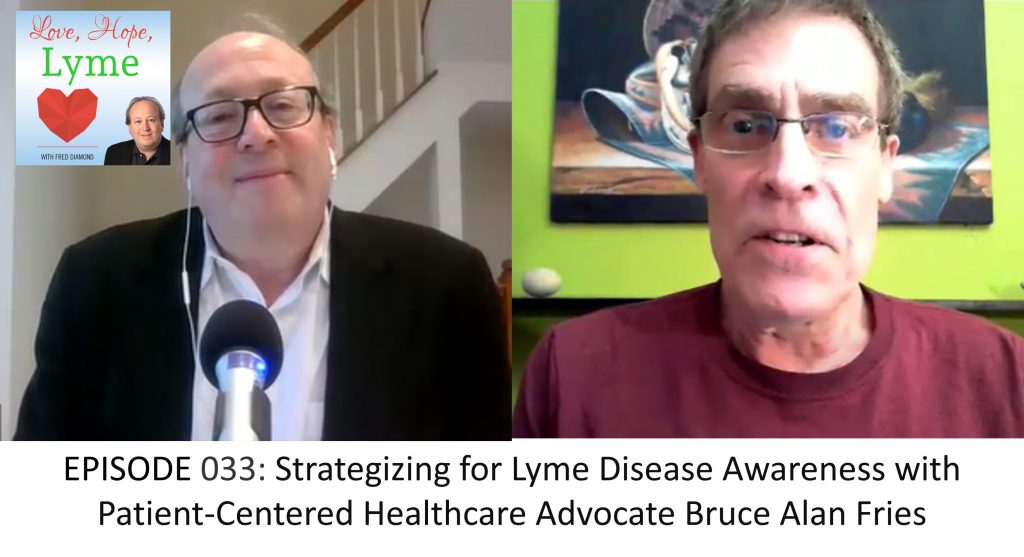PODCAST: A commitment to Lyme disease advocacy

By Fred Diamond
When I wrote my book “Love, Hope, Lyme: What Family Members, Partners, and Friends Who Love a Chronic Lyme Survivor Need to Know,” I was surprised to learn about the political challenges Lyme survivors faced just to get treated. Government agencies denied that chronic Lyme even existed and medical organizations advocated limited treatment that helped few.
I met many advocates who organized movements to make change, and many of them have been featured on the Love, Hope, Lyme podcast.
Today’s episode features Bruce Fries, who was at the forefront of many of these movements.
Intro to Lyme advocacy
Bruce’s journey with Lyme disease began in 2007, marked by symptoms like swollen knees and migratory joint pain. Misdiagnosed for two years, he experienced marginalization and gaslighting from medical professionals, especially within the Infectious Diseases Society of America (IDSA).
“My background as a Lyme patient began in 2007 with swollen knees and migratory joint pain. It was two years before I finally got diagnosed and treated. As I learned more about Lyme disease and some of the controversies, I got motivated to do something to help address the need for better diagnosis and treatment. I was especially concerned about the IDSA guidelines, which has a very narrow definition of Lyme disease, which restricts access to care and denies treatment to a lot of patients with chronic Lyme disease,” he said.
Bruce’s advocacy work started with The Mayday Project, aiming to raise awareness about Lyme disease through media campaigns, press releases, and public demonstrations. He believes that providing hope and inspiration is a crucial part of the healing process for patients. Bruce’s background in project management, sales, and marketing played a vital role in his advocacy efforts, helping to empower other patients and advocates.
One of his significant accomplishments was a campaign that resulted in major media coverage and congressional visits to raise awareness. Bruce emphasized the importance of participating in congressional advocacy events, like those organized by the Center for Lyme Action. These events allow advocates to engage with Congress and push for legislation and funding to address Lyme disease effectively.
The problem with IDSA Guidelines
His personal experience motivated him to address the need for better diagnosis and treatment of Lyme disease. He highlighted the restrictive IDSA guidelines, which often deny treatment to chronic Lyme patients, as a significant issue. The IDSA guidelines have a narrow definition of Lyme disease, influenced by financial conflicts of interest tied to patents on vaccines and diagnostic tests.
These guidelines also deny the existence of chronic Lyme disease and limit treatment to a short course of antibiotics, leading to misdiagnosis and financial hardships for many patients. Bruce advocates for the adoption of more reasonable guidelines from ILADS.
“One of the things that’s particularly outrageous is we have better guidelines by ILADS, and these guidelines are ignored and not widely distributed. But they’re more reasonable where the treatment is determined based on clinical response, not arbitrary numbers like two to four weeks of antibiotics,” he shared.
Engagement with CDC
Bruce’s relationship with the CDC transitioned from adversarial to collaborative over time. Initially, he filed legal petitions to end the CDC’s preferential treatment of the IDSA guidelines. Over time, he built relationships with CDC officials, leading to constructive discussions on improving Lyme disease content and policies.
Bruce was even invited to participate in developing questions related to the Pfizer VLA15 Lyme vaccine, demonstrating the potential for collaboration between advocates and public health organizations.
Bruce said, “I met the CDC people at an HHS Tick-Borne Disease Working Group and realized they were not the enemy. I made friends with them, we talked about how we could work together to effect change. I had some issues with some of the content on the website and was successful in getting them to correct that through administrative complaints. They said, “Hey, why don’t you come to us? Let’s talk about it.”
Mothers Against Lyme
Bruce’s advocacy also extended to addressing the impact of Lyme disease on women, particularly pregnant women and their children. He helped organize Mothers Against Lyme, a group that focuses on advancing research on maternal-fetal transmission of Lyme disease. Their efforts led to significant meetings with NIH officials and a webinar that raised awareness among researchers and garnered congressional recognition for their work.
Currently, Bruce is working with the Senate Health Committee to hold a public hearing on health inequities associated with chronic Lyme disease. He continues to engage with the CDC to improve their Lyme disease content and is involved in the One Health Initiative, which explores the integration between human health, animal health, and the environment.
Advice for Advocates
Bruce emphasizes the importance of reaching out and supporting Lyme patients to combat isolation. He encourages everyone to engage with their congressional representatives and participate in advocacy efforts. Helping others can be empowering and is a crucial part of the healing process for many Lyme patients.
The podcast highlights the ongoing challenges and efforts in Lyme disease advocacy. Bruce’s dedication and achievements serve as an inspiration for others to get involved and make a difference. Through collaborative efforts, increased awareness, and persistent advocacy, the Lyme community can continue to push for better diagnosis, treatment, and support for all those affected by this debilitating disease.
Click here to listen to all episodes of the Love, Hope, Lyme Podcast or on YouTube.
Fred Diamond is based in Fairfax, Virginia and can be contacted via Facebook. His popular book, “Love, Hope, Lyme: What Family Members, Partners, and Friends Who Love a Chronic Lyme Survivor Need to Know” is available on Amazon. The e-version of the book is always free to Lyme survivors. PM Fred on Facebook for your copy.





















We invite you to comment on our Facebook page.
Visit LymeDisease.org Facebook Page